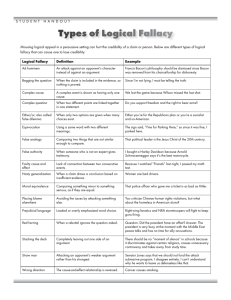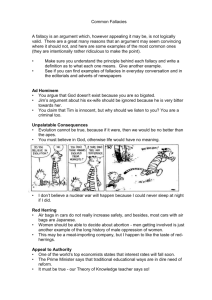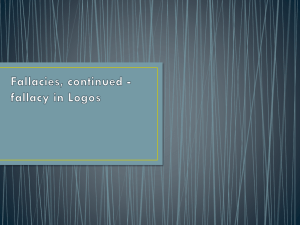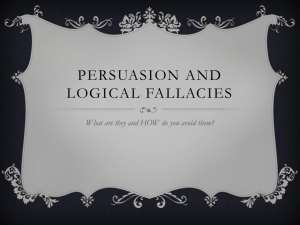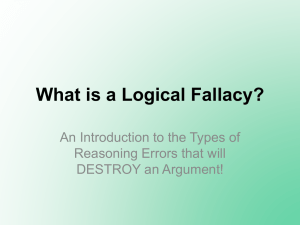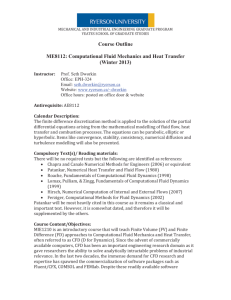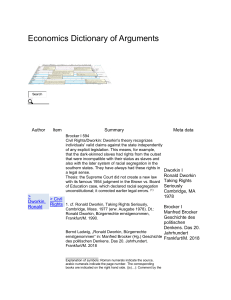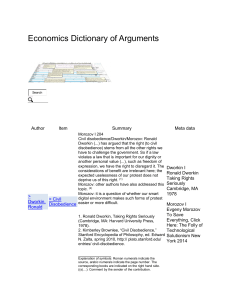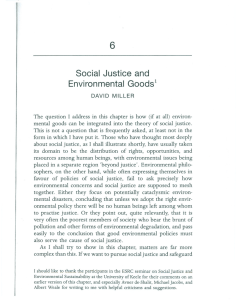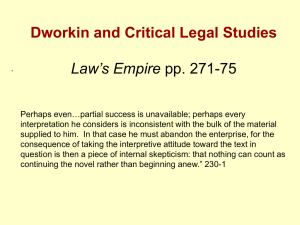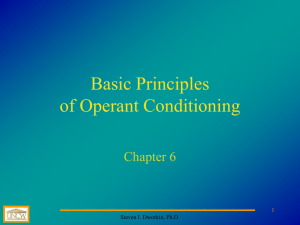Logical Fallacies
advertisement
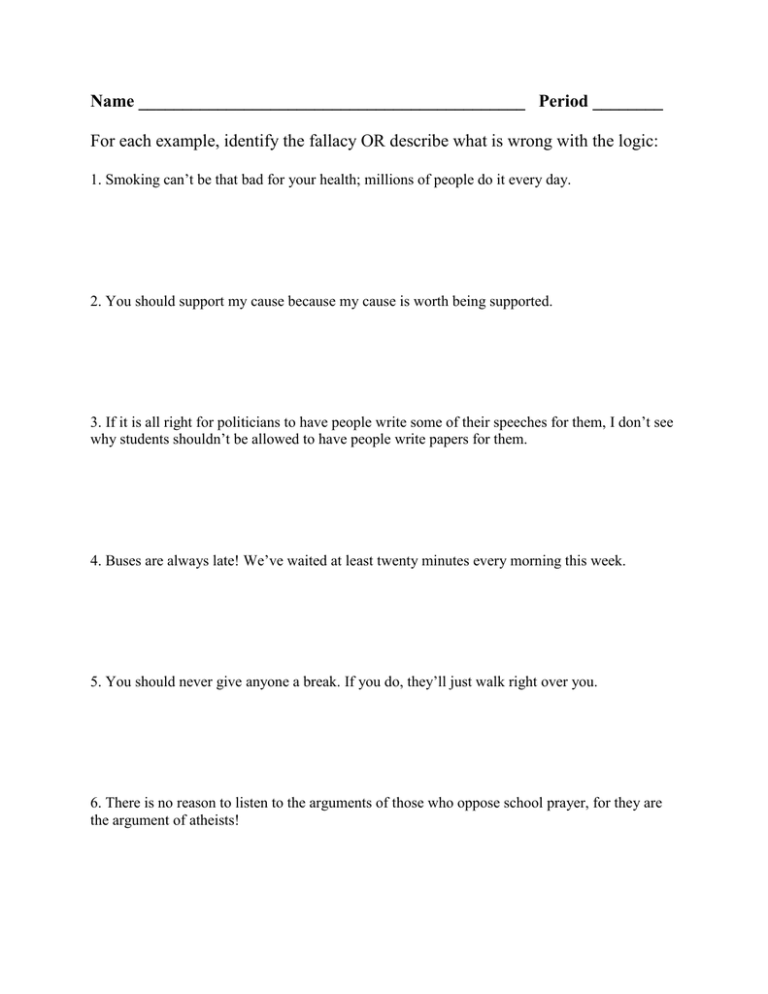
Name ____________________________________________ Period ________ For each example, identify the fallacy OR describe what is wrong with the logic: 1. Smoking can’t be that bad for your health; millions of people do it every day. 2. You should support my cause because my cause is worth being supported. 3. If it is all right for politicians to have people write some of their speeches for them, I don’t see why students shouldn’t be allowed to have people write papers for them. 4. Buses are always late! We’ve waited at least twenty minutes every morning this week. 5. You should never give anyone a break. If you do, they’ll just walk right over you. 6. There is no reason to listen to the arguments of those who oppose school prayer, for they are the argument of atheists! 7. I should be able to stay out late. Everybody else does. 8. More young people are attending school than ever before. Yet, juvenile crime and alienation from the family is on the rise. Clearly, education is corrupting our young people. 9. Either you favor a strong national defense, or you favor allowing other nations to dictate our foreign policy. 10. You are a disagreeable person and if you disagree with me on this, it will only further prove what a disagreeable person you are. Logical Fallacies Hasty Generalization When you make a general statement about “everyone or everything” based on a few examples. Examples: “My friend said her psychology class was hard, and the one I’m in is hard, too. All psychology classes must be hard!” This includes most stereotypes about people (“librarians are shy and smart,” “wealthy people are snobs,” etc.). False Cause and Effect When you assume one event caused another just because it happened before it. Example: “Napoleon was a great emperor because he was short.” Either/Or Fallacy (aka False Dichotomy) When you present a choice as if there are only two possibilities. Example: “I thought you were a good person, but you weren’t at church today.” Circular Reasoning When you “argue in a circle” by giving evidence that is essentially the same as your claim. Examples: “Every word of the Bible is true. We know because the Bible itself tells us so.” “Doing that should be illegal because it’s a bad thing to do.” “But why do you think it is bad?” “Well, if you do it you are breaking the law, and it’s bad to break the law.” Weak Analogy Definition: When an irrelevant comparison between two things is used to support an argument. (Analogies can be great, but the parts of the things being compared should be relevant to the issue.) Example: “Coffee cups and diamonds are both made up of atoms. Diamonds are very valuable. Therefore, coffee cups are very valuable.” Personal Attack When you challenge your opponent personally, rather than the argument being made. Example: “Andrea Dworkin has written several books arguing that pornography harms women. But Dworkin is just ugly and bitter, so why should we listen to her?” Slippery slope Definition: When you threaten that a chain reaction will inevitably occur if one event takes place, but you do not actually explain why each step in the chains of events is certain to happen. Example: “Animal experimentation reduces our respect for life. If we don’t respect life, we are likely to be more and more tolerant of violent acts like war and murder. Soon our society will become a battlefield in which everyone constantly fears for their lives. It will be the end of civilization.” Bandwagon Definition: When you try to convince your audience to do or believe something because everyone else (supposedly) does. Example: “Everyone is voting for David, so he is definitely the best candidate!”
